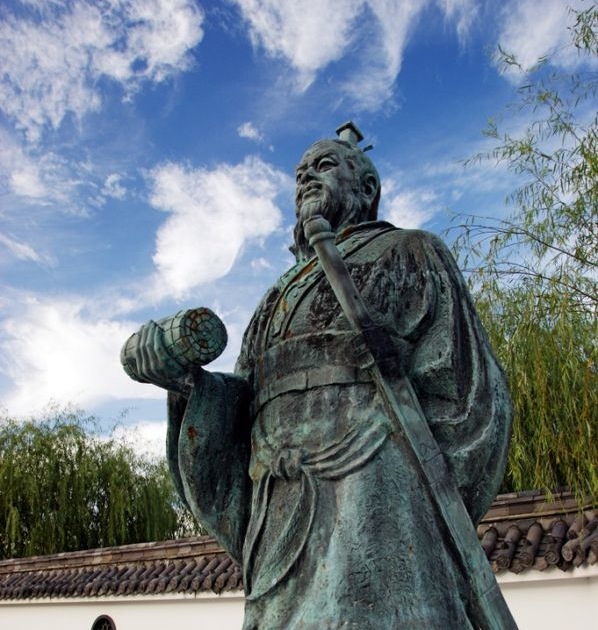War, what is it good for? Don’t say absolutely nothing. There’s a lot that can be learned from studying war—much of which can be used in daily life. Taking the whole “killing people” bit out of the equation and looking at the different philosophies, strategies, and tactics involved in warfare, there’s quite a bit in there that can help you win in the game of life.
Life, in a sense, is a war. And while we are all fighting for different things—for happiness, for respect, for growth, for knowledge, for health, for wealth, for work, for enlightenment, or simply for survival—we are all fighting our own hard battles.
Sometimes it’s simply a battle to get out of bed. Sometimes it feels like tests and difficulties are raining down like mortars from every side, and all you can do is duck and cover until it’s over. Sometimes that hard-fought victory just feels so empty.
Inspired by some of the greatest military minds throughout history and an awesome book called The 33 Strategies of War, here are three lessons culled from warriors and warfare that can help you practice the art of war in your everyday life.
Do Not Fight the Past / Be Present and Face Reality
Armed with the power of Thy name nothing can ever hurt me, and with Thy love in my heart all the world’s afflictions can in no wise alarm me. –Baha’u’llah (Baha’i Prayers, p 129)
While it can be so tempting to ruminate about what she really meant when she said that one thing, or to go over better comebacks for that guy at work who’s always jerk—don’t. The problem is that hindsight is always 20/20. We think we knew exactly what we did wrong or should have done, when no amount of planning or strategy can ever prepare us for the infinite possibilities of life. Do not fight the last war, but instead focus on the present.
Sure, it’s valuable to understand what went wrong in the past, but it’s much more important to learn presence of mind, to think and to make good decisions in the moment. The end goal is that if you are attuned to the present, you will make the best decisions possible for the here and now, and thus have fewer mistakes to analyze in the future.
Remember how Prussia used to be a great power? Used to. In 1806, The Prussians lost badly to Napoleon’s troops at the Battle of Jena. The Prussians marched in perfect formation, crisply and precisely to the beat of a drum while Napoleon’s marksmen mowed them down from behind walls and from rooftops. That kind of show of force and formation worked in the past, but Napoleon was innovative and not afraid to go against tradition or to fight in new ways. The Prussians had reality staring them in the face, but were still confident that past success was an indication of future victory. It wasn’t.
Every battle, every war is different. What worked before may not work today. Focus on being present, and adapting to the situation at hand. The true genius of Napoleon lay in focusing on the circumstances of the moment.
Best of all, and this goes out to all those who are worriers: A mind focused on the here and now has no room for anxiety, or for worrying about the past or the future.
Retreat Can Be a Sign of Strength / Pick Your Battles
If thy daily living become difficult, soon thy Lord will bestow upon thee that which shall satisfy thee. Be patient in the time of affliction and trial, endure every difficulty and hardship with a dilated heart, attracted spirit and eloquent tongue in remembrance of the Merciful. –’Abdu’l-Baha (Selected Writings of Baha’u’llah and ‘Abdu’l-Baha, p 375)

Ever heard of something called a Pyrrhic victory? It’s a victory won at a terrible cost.
The story goes that the Greek King Pyrrhus of Epirus, who hoped to become the next Alexander the Great, took on the Romans—first at Heraclea in 280 BC and then at Asculum in 279 BC. In the first battle, he won a great victory, but lost many key soldiers and important generals. When the armies met again at Asculum, Pyrrhus and his troops once again outmaneuvered the Romans. But the victory was empty; Pyrrhus’s loses were terrible, officers he depended on were killed, and he was badly wounded. When congratulated on his victory, Pyrrhus replied that, “If we defeat the Romans in one more battle, we shall be totally ruined.”
Retreating is not weakness, but rather a sign that you know your limits. Being excited about, say, a new startup venture or becoming a new homeowner is natural. And if the potential payout or reward is enticing, we tend to see what we want to see, and gloss over the difficulties. We are easily seduced by potential. The farther we go, the deeper we get, the more difficult it is to come back. Mistakes become more costly, and lead to even more problems. Sometimes it’s better to back off, to cut losses, to live to fight another day.
It is hard to be patient. Who doesn’t want to achieve their goals and satisfy their desires right now? But sometimes committing to something without enough thought or planning or resources, can cause serious problems. Patience pays dividends. It provides the opportunity to wait for the right moment to take action, and to ground our dreams in reality.
To be a warrior means facing reality, focusing on what we have and the strengths that we possess now in order to make decisions. Warriors know when to attack, when to retreat, when to preserve energy and when to take a calculated risk.
Cross the Rubicon/ Go to the death ground
Men who suffer not, attain no perfection. The plant most pruned by the gardeners is that one which, when the summer comes, will have the most beautiful blossoms and the most abundant fruit…. A soldier is no good General until he has been in the front of the fiercest battle and has received the deepest wounds –’Abdu’l-Baha (“The Benefits of God to Man,” Paris Talks, p 51)

Crossing the Rubicon is an idiom for going to the point of no return, and comes from the story of how Julius Caesar, in 49 BC, received a message from Roman senators, afraid of his growing power, which told him to disband his army or be considered a traitor. Caesar only had a few troops with him while on a military campaign in Gaul, but decided to make his way back to Rome to fight. When they reached the Rubicon River, the border between Gaul and Italy, Caesar knew that there was no turning back.
Seizing initiative, Caesar marched on Rome, scared the senators, and well, the rest is history.
Chinese strategist, Sun Tzu, developed a theory called the “death ground,” a place where an army has no escape, such as backed up against a mountain or river. Without a path to retreat, an army is forced to fight with more spirit and initiative, because their lives depend on it.
Now, let’s take this in the context of modern life. It’s hard to make decisions, especially if it seems like there’s currently no pressure or we just “don’t feel ready.” Sometimes it’s better to simply make the most of what we have now, than to wait for ideal circumstances that may or may not ever materialize.
When there’s no turning back, we have to find a way to make it work. Think: applying for grad school, moving to a new country, or having kids—there always seems to be a “better time.” But sometimes we have to take the risk and cross into the metaphorical death ground. This isn’t about being sloppy or reckless, but about having conviction. By acting boldly and taking initiative, we can create the circumstances we want, rather than passively waiting for whatever life may bring. Sometimes we have to cast the die and take a leap of faith.
How have you become a warrior in your own life?